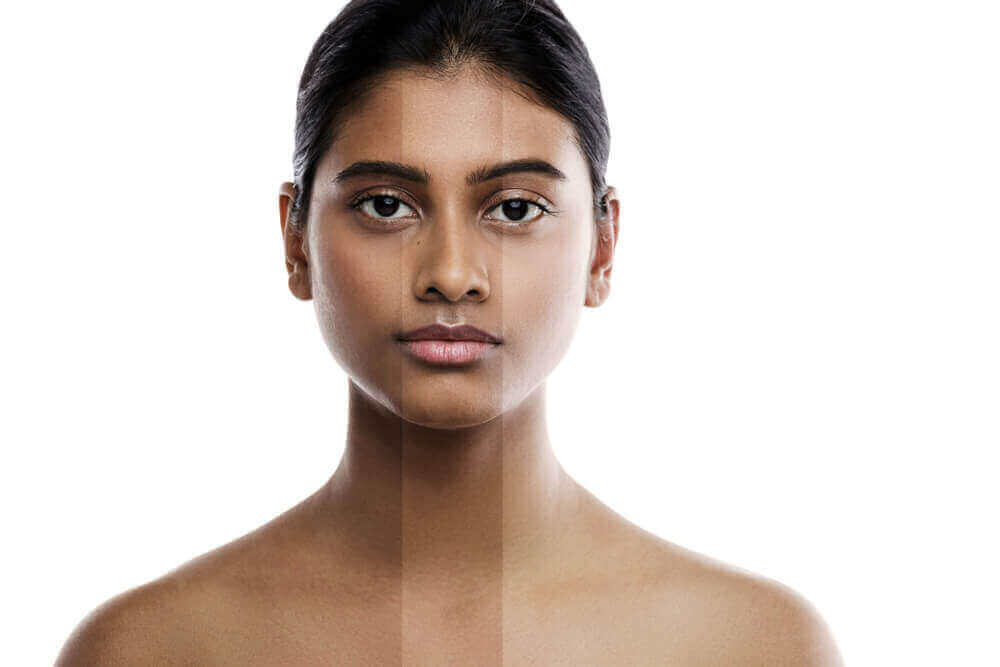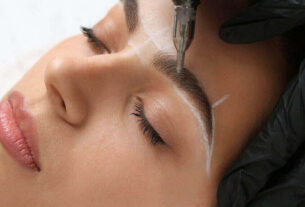
Whether you’re looking to address pigmentation issues, uneven skin tone, or simply brighten your skin, this guide will help you understand the various options available.
1. Topical Treatments
Topical treatments are among the most common and accessible skin-lightening options. These creams, serums, and gels apply directly to the skin. They typically contain active ingredients such as hydroquinone, kojic acid, vitamin C, and niacinamide.
- Hydroquinone: Often considered the gold standard in skin-lightening, hydroquinone works by inhibiting melanin production, which helps lighten dark spots and hyperpigmentation.
- Kojic Acid: Derived from fungi, kojic acid is a natural alternative to hydroquinone. It reduces melanin production and often works with other lightening agents.
- Vitamin C: Known for its antioxidant properties, vitamin C helps brighten the skin and even out skin tone by reducing melanin production.
- Niacinamide: This form of vitamin B3 can help lighten dark spots and improve skin texture by reducing inflammation and supporting the skin’s barrier function.
2. Chemical Peels
Chemical peels are a popular choice for more intensive skin-lightening. They involve applying a solution to the skin that exfoliates the outer layers, revealing fresher, lighter skin underneath. Chemical peels can vary in strength:
- Superficial Peels: These target the outermost layer of the skin and are suitable for mild discoloration and dullness.
- Medium Peels: These penetrate deeper into the skin and are effective for treating moderate pigmentation and uneven skin tone.
- Deep Peels: These are more intensive and are usually reserved for severe pigmentation issues. They require a longer recovery time but offer significant results.
At Reflection Facethetics Clinic, Dr. Deepika customizes chemical peel treatments based on individual skin needs, ensuring optimal results with minimal downtime.
3. Laser Treatments
Laser treatments use focused light to target specific pigments in the skin. They are highly effective for treating various pigmentation issues, including age spots, melasma, and sunspots. There are several types of laser treatments:
- Fractional Lasers: These work by creating tiny columns of thermal injury in the skin, which stimulates collagen production and helps reduce pigmentation.
- Q-Switched Lasers: Q-Switched lasers are designed to target melanin in the skin, breaking it down and allowing the body to naturally remove it.
- Intense Pulsed Light (IPL): While not a laser per se, IPL uses light to target pigment and redness, making it suitable for treating multiple pigmentation issues simultaneously.
Dr. Deepika’s expertise at Reflection Facethetics Clinic ensures that each laser treatment is tailored to address the unique needs of the patient, providing effective and safe results.
4. Microdermabrasion
Microdermabrasion is a non-invasive procedure that involves exfoliating the outer layer of the skin using tiny crystals or a diamond-tipped wand. This process removes dead skin cells and promotes the growth of new, lighter skin. It’s particularly useful for improving skin texture and tone and is often used in conjunction with other skin-lightening treatments.
5. Microneedling
Microneedling, or collagen induction therapy, involves using a device with fine needles to create micro-injuries in the skin. This stimulates the body’s natural healing processes and enhances the absorption of topical lightening agents. Microneedling can help reduce pigmentation, improve skin texture, and enhance overall skin radiance.
6. Natural and Home Remedies
For those who prefer a more natural approach, various home remedies can offer mild skin-lightening effects. Ingredients such as aloe vera, turmeric, and honey have been used traditionally to brighten the skin and reduce pigmentation. However, it’s essential to manage expectations with home remedies, as they typically produce more gradual results compared to clinical treatments.
Conclusion
Choosing the right skin-lightening treatment involves understanding your specific skin concerns and goals. At Reflection Facethetics Clinic in Bangalore, Dr. Deepika provides personalized consultations to help you select the most suitable treatment based on your individual needs. From topical treatments and chemical peels to advanced laser therapies and microneedling, there are numerous options available to achieve a brighter and more even complexion.
If you’re considering a skin-lightening treatment and want expert guidance, Reflection Facethetics Clinic is here to assist you. Dr. Deepika and her team offer comprehensive assessments and tailored solutions to ensure you get the best results. Don’t wait to start your journey toward radiant skin. Book your appointment now and take the first step toward achieving your skincare goals!



